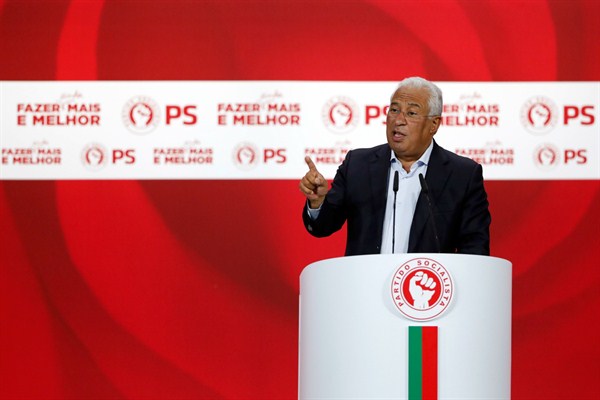Portuguese Prime Minister Antonio Costa and his ruling Socialist Party scored a solid victory in parliamentary elections earlier this month, capturing roughly 37 percent of the vote and expanding their plurality in parliament from 86 to 106 seats. However, the Socialists fell short of the 116 seats needed for a majority, and are foregoing the formal support agreements with smaller left-leaning parties that allowed them to govern over the past four years. That means they will have to negotiate with other parties on an ad hoc basis in order to enact legislation. In an email interview with WPR, Sofia Serra-Silva, a political science researcher at the University of Lisbon’s Institute of Social Sciences, explains why this could spell trouble for the Socialists’ ability to tackle Portugal’s difficult policy challenges.
World Politics Review: What do these election results say about Portuguese voters’ degree of satisfaction with the economy and their assessment of Costa’s government?
Sofia Serra-Silva: Portugal’s Socialist Party, or PS, won this month’s general election with more votes and elected MPs than in the last election in 2015. Portuguese voters opted for the continuity of a left-wing government led by the Socialists, although they again fell short of an outright majority in parliament. Nevertheless, the Socialists now have more political strength and room to maneuver in their negotiations with other parties.

